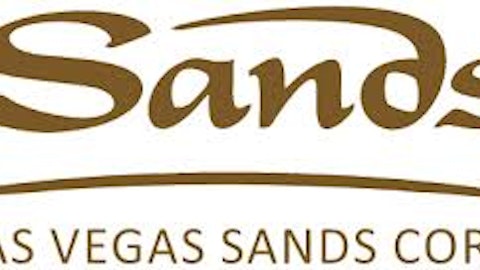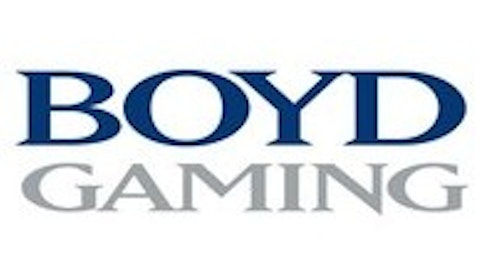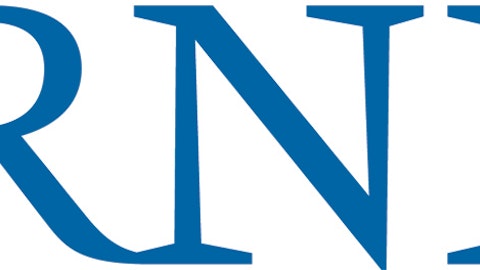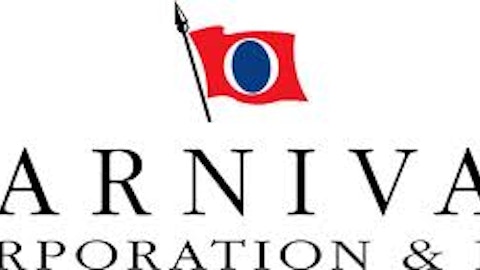Resort and casino stocks are so pricey that investors might want to consider betting against the house. With the exception of , cruise lines and land-based casinos are too expensive.
Sometimes the House Loses
Full-year casino industry revenue in Macau climbed 14% to a record 304 billion patacas ($38.06 billion) in 2012. Even though the casino industry in Macau is healthy, fierce competition can destroy corporate profits.

The casino operator’s high-roller business in Macau properties suffered a decline in receipts and a minimal increase in mass-market play, amid fierce competition from rivals like Galaxy Entertainment Group and Las Vegas Sands Corp. (NYSE:LVS), which reported better-than-expected gambling sales for the fourth quarter following the opening of a new resort in Macau. The 71-year-old billionaire Chief Executive Officer Steve Wynn said, “Murder tough, those guys have blood in their eye.” Seventy percent of the company’s revenue comes from its Macau operations, with the rest coming from Nevada.
Sands China, a competitor controlled by billionaire Sheldon Adelson, posted a 52% jump in profit for the fourth quarter as it was able to lure more gamblers.
Hong Kong-based Capital Securities analyst Lantis Li said, “Wynn Macau is lagging its peers, primarily due to its limited exposure to the mass market. Wynn Macau has only one property in the peninsula and it has been relying on the VIP business.”
To fight the intense competition, Wynn outlined the steps he’s taking, which include a high-limit slots area expected to be completed this year and a $4 billion resort on the Cotai Strip for completion in 2016 which, when fully functional, will dazzle visitors with air-conditioned gondola rides across a lake sprinkled with fountains.
Royal Caribbean Results
Paradoxically, cruise companies seem to be sailing through calmer waters in the wake of horrible news in 2012.
Royal Caribbean Cruises Ltd. (NYSE:RCL) anticipates more bookings during 2013 based on demand in the U.S. offsetting persistent declines in Europe during the year. The company expects increases in revenue from passenger tickets and customers expenditures while on board by 2% to 4%. It excludes currency fluctuations, and expects earnings of $2.30 per share to $2.50 per share. It also expects to generate earnings per share within a range of $2.30 to $2.50 in 2013.
During the fourth quarter, the revenue reported was lower than the expected, and the company said that the bookings in the recent weeks were 20% higher than the previous year. The demand declined drastically after the Costa Concordia, a ship operated by the company’s largest competitor Carnival Corporation (NYSE:CCL), ran aground off the Italian coast, a terrible accident which resulted in about 30 deaths. The company expects high yields on its Caribbean and Alaska itineraries to reduce the impact of reduction in demand in Europe. Europe witnesses a weak economy mainly on its Mediterranean rim and persistent impacts from the Costa Concordia have adversely impacted the sales.
According to Richard Fain, Royal Caribbean’s Chief Executive Officer, “Looking forward, we see a tale of two continents; North America is doing well, while parts of Europe continue to be a challenge.” During the fourth quarter, the company reported a net loss of $392.8 million, or $1.80 per share, on revenue of $1.81 billion as compared to a profit of $36.6 million, or 17 cents per share, on revenue of $1.78 billion during the previous year. During 2012, the company’s net yields increased 3.0% on a constant-currency basis and net cruise costs excluding fuel increased 4.2% on a constant-currency basis.
The company reported a net income before the non-cash impairment charge of $432.2 million, or $1.97 per share ,as compared to net income of $607.4 million, or $2.77 per share, during 2011. Fain also said, “While it is appropriate that we record this impairment charge now, we remain confident in and committed to the Pullmantur brand. Despite terribly challenging multi-year economic headwinds, Pullmantur’s management team has done an excellent job in maintaining the brand’s market-leading position while simultaneously diversifying guest sourcing into new markets.”
The loss arising as result of $413.9 million impairment charge related to the company’s Spanish cruise line Pullmantur, which was struck by the austerity measures in Spain.





